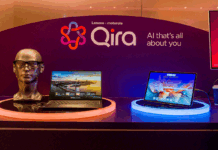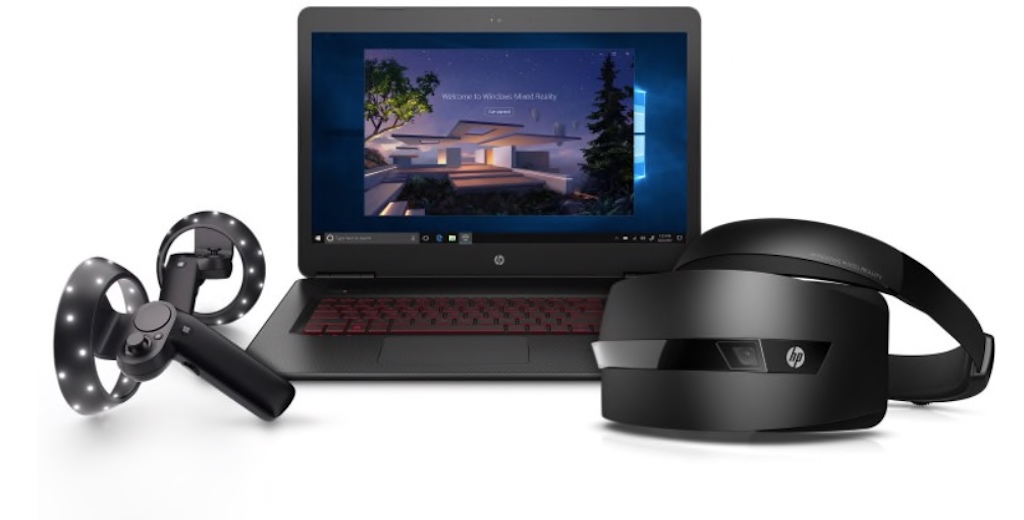
Are you interested in exploring virtual reality? You’re not alone. VR is becoming a big deal these days and Microsoft’s entry into the field with its Windows Mixed Reality (WMR) platform last fall really helped to give VR a boost. When it comes to VR on the PC, you have leading virtual reality headsets like the Oculus Rift and HTC Vive, and now a growing number of WMR headsets to choose from.
If you’re not sure what the differences between all these flavours of VR are, you’re also not alone. I put together a post that walks through what you need to know there. One thing all the major PC-based versions of virtual reality have in common is the need for powerful hardware, including a dedicated video card. You might think that the demanding specs would mean virtual reality is limited to desktop PCs. That used to be the case, but manufacturers are now offering gaming laptops that have the power needed to drive a VR headset.
Here are five of the top picks for VR-compatible laptops.
Acer Predator G9 15.6-inch Gaming Laptop
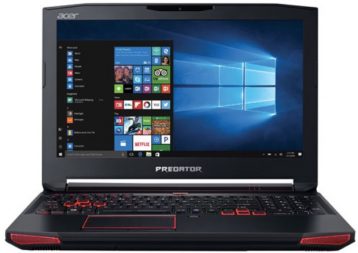 With the Acer Predator G9 gaming laptop, you don’t even need to look at the requirements for VR headsets. With an Intel Core i7-7700HQ CPU, 16MB of RAM and—most importantly—an extreme video card in the Nvidia GTX 1070 with 8GB of RAM, this laptop leaves all the recommended specs in the dust. Oculus Rift, HTC Vive, or Windows Mixed Reality, all the main VR platforms are going to be butter smooth. With four USB 3.0 ports and HDMI, connecting the VR gear is not a concern either.
With the Acer Predator G9 gaming laptop, you don’t even need to look at the requirements for VR headsets. With an Intel Core i7-7700HQ CPU, 16MB of RAM and—most importantly—an extreme video card in the Nvidia GTX 1070 with 8GB of RAM, this laptop leaves all the recommended specs in the dust. Oculus Rift, HTC Vive, or Windows Mixed Reality, all the main VR platforms are going to be butter smooth. With four USB 3.0 ports and HDMI, connecting the VR gear is not a concern either.
Chances are you’re going to want to do some non-virtual PC gaming as well, and with the Acer Predator G9 you’re well equipped with a completely self-contained, high performance PC gaming station. The display is a 15.6-inch IPS LED-backlit panel with 1080p resolution. The keyboard is a gaming-optimized Predator ProZone RGB backlit version with four customizable backlight zones. There’s 256GB of SSD storage for fast system performance and room to store a favourite game or two, with another 1TB of mass hard drive storage. Killer DoubleShot Pro networking ensures lag is never a factor, whether you’re connecting by Ethernet or Wi-Fi.
HP Omen 17.3-inch Gaming Laptop
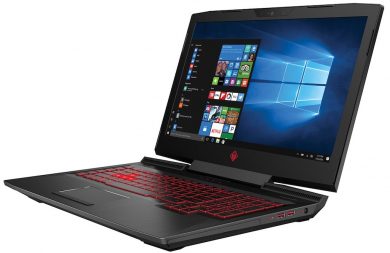 I can personally attest to the fact that this HP Omen laptop has what it takes for virtual reality. I reviewed it a few weeks back, including using it for some hands-on time with HP’s own Windows Mixed Reality headset and controllers. And yes, this laptop will absolutely do the trick when it comes to a smooth virtual reality experience. It has the Nvidia GeForce GTX 1060 video card that’s become the go-to choice for high performance VR, with 6GB of video RAM on tap.
I can personally attest to the fact that this HP Omen laptop has what it takes for virtual reality. I reviewed it a few weeks back, including using it for some hands-on time with HP’s own Windows Mixed Reality headset and controllers. And yes, this laptop will absolutely do the trick when it comes to a smooth virtual reality experience. It has the Nvidia GeForce GTX 1060 video card that’s become the go-to choice for high performance VR, with 6GB of video RAM on tap.
Processing muscle is provided by Intel’s Core i7-7700HQ with 12GB of RAM. Storage is 128GB of speedy SSD supplemented by a 1TB hard drive. And when you take off the headset to look at the screen, you’re treated to a massive 17.3-inch, Full HD display with a fast, game-friendly 120Hz refresh rate. Audio is also excellent, thanks to dual speakers delivering Bang & Olufsen-tuned sound.
ASUS ROG Dragon Scale 15.6-inch Gaming Laptop
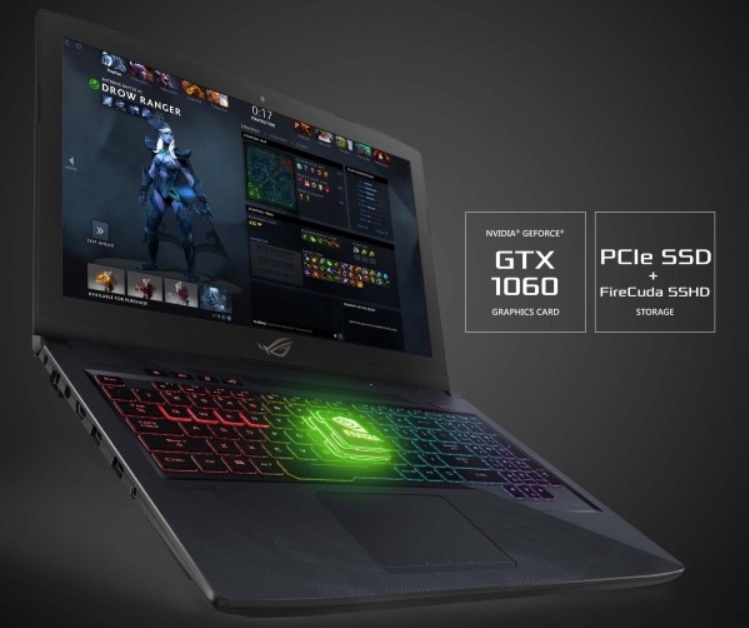 ASUS knows a thing or two about gaming laptops and this member of its Republic of Gamers lineup is more than ready to take on your virtual reality needs. It’s equipped with an Nvidia GeForce GTX 1060 video card with 6GB of video RAM. Along with the 7th generation Intel Core i7-7700HQ quad-core CPU at 2.8GHz and 16GB of DDR4 RAM, it exceeds the recommended specs for all the major VR platforms.
ASUS knows a thing or two about gaming laptops and this member of its Republic of Gamers lineup is more than ready to take on your virtual reality needs. It’s equipped with an Nvidia GeForce GTX 1060 video card with 6GB of video RAM. Along with the 7th generation Intel Core i7-7700HQ quad-core CPU at 2.8GHz and 16GB of DDR4 RAM, it exceeds the recommended specs for all the major VR platforms.
When you’re not using it for exploring virtual reality environments, the 15.6-inch Full HD IPS display is crisp and ASUS says you can expect PC game frame rates to hit 120 FPS. A 256GB PCIe SSD ensures system performance is snappy and the 1TB of mass storage is a FireCuda hybrid drive so even the biggest games load quickly.
MSi GT75VR 17.3-inch Gaming Laptop
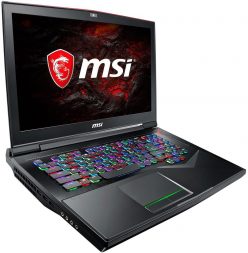 MSi’s GT75VR is the gaming laptop for those who don’t want to worry about the need to glance at requirement specs … for the next decade …
MSi’s GT75VR is the gaming laptop for those who don’t want to worry about the need to glance at requirement specs … for the next decade …
There isn’t one current VR recommended requirement that the massive MSI laptop doesn’t leave in the dust, from the Intel Core i7-7820HK CPU to the Nvidia Geforce GTX 1080 video card (yes, GTX 1080, not a typo) with 8GB of video RAM.
For the rest of your gaming needs, it doesn’t get much better than this: a 17.3-inch 4K display, 32GB of DDR 4 RAM, a 512GB SSD plus 1TB of 7200rpm hard drive storage, five USB 3.0 ports, Killer N1535 Combo (2×2 AC) Wi-Fi and SteelSeries Engine 3 backlight customized at the individual key level. To learn more about this gaming beast, be sure to read Matt Paligaru’s review.
Alienware 13.3-inch VR Gaming Laptop
From one extreme to another, the last laptop on my list is Alienware’s 13.3-inch VR Gaming Laptop.
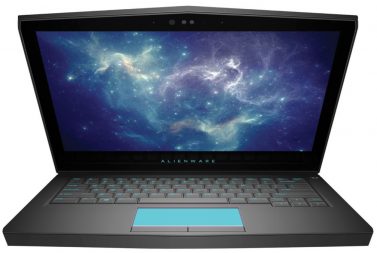 That’s not to suggest this laptop is underpowered. In fact, with a quad-core 2.8GHz Core i7 processor, 8GB of DDR4 RAM, Nvidia GeForce GTX video card with 6GB of RAM, 256GB SSD and Alienware TactX keyboard with RGB LED lighting, its specs are on par with most of the laptops on this list. It doesn’t have quite as much storage so you won’t be able to bring your entire PC game library with you, but it satisfies the recommended hardware specs for all the VR platforms.
That’s not to suggest this laptop is underpowered. In fact, with a quad-core 2.8GHz Core i7 processor, 8GB of DDR4 RAM, Nvidia GeForce GTX video card with 6GB of RAM, 256GB SSD and Alienware TactX keyboard with RGB LED lighting, its specs are on par with most of the laptops on this list. It doesn’t have quite as much storage so you won’t be able to bring your entire PC game library with you, but it satisfies the recommended hardware specs for all the VR platforms.
And with a relatively compact 13.3-inch Full HD display instead of 15-inches or even 17-inches, this Alienware puts the ‘mobile’ back in mobile PC gaming.
Didn’t see a gaming laptop from your favourite PC manufacturer on the list? Don’t worry, there are many more VR-capable laptops being released these days. There are even some non-gaming laptops like the upper range model of Microsoft’s Surface Book 2 that meet virtual reality requirements. I could only pick five, but you can find them all at Best Buy.


